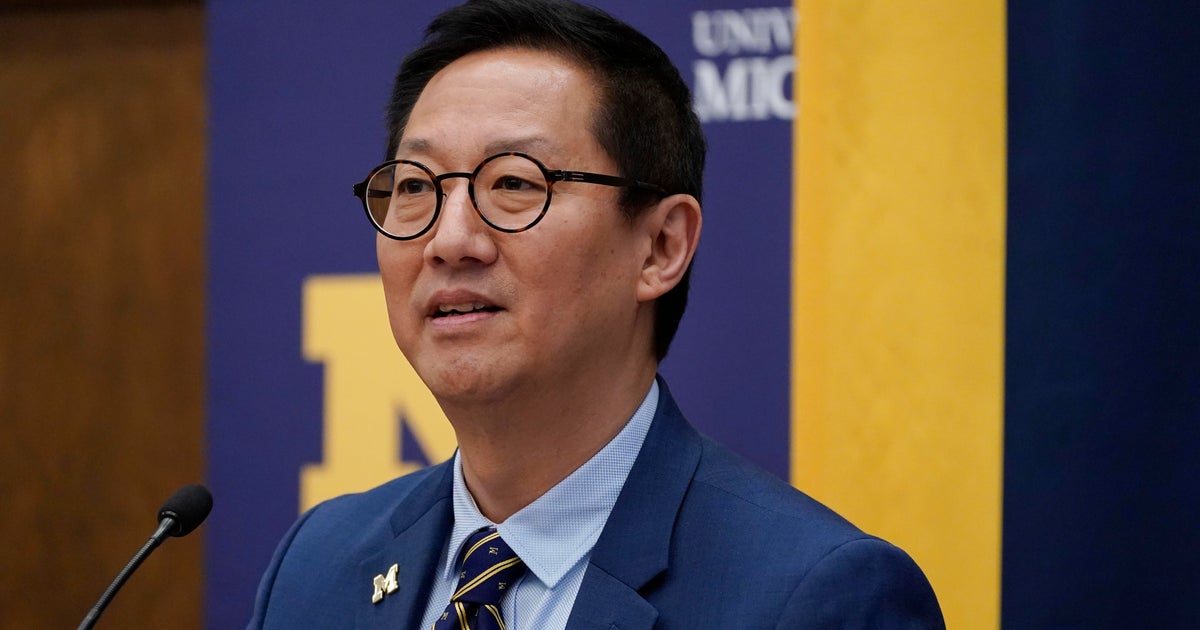Former University of Michigan President Santa Ono was rejected on Tuesday by the Florida Board of Governors to become the next president of the University of Florida.
The 10-6 vote comes weeks after the Board of Trustees unanimously approved Ono for the university’s 14th president. Ono recently served as the 15th president at the University of Michigan.
Ono’s proposed contract included several ideological requirements, such as how well he stopped programs focusing on diversity, equity and inclusion. He was to cooperate with Gov. Ron DeSantis’ Office of Government Efficiency — similar to the office created by President Donald Trump — and appoint other university officials and deans who are “firmly aligned” with Florida’s approach.
Several prominent conservatives raised questions about Ono before the vote over pro-Palestinian protests, climate change efforts, gender ideology and DEI programs at the University of Michigan and his previous academic positions.
One of those conservatives was U.S. Sen. Rick Scott, who said on Monday that he had “serious concerns” about Ono potentially becoming president. Scott urged the Board of Governors to question the encampment that occurred on U of M’s Diag last year and Ono’s response to reports of anitsemitism on campus.
U of M was among 60 universities and colleges that received a letter in March 2025 from the U.S. Department of Education warning the schools of potential enforcement actions involving obligations under Title VI of the Civil Rights Act to protect Jewish students on campus, including uninterrupted access to campus facilities and educational opportunities.
“UF is a world-renowned institution and our state’s flagship university that has set a gold standard for fighting antisemitism and protecting Jewish students, and its leadership must follow suit. Clearly, Ono has a concerning record from his time at the University of Michigan, where he allowed an illegal, pro-terrorist encampment to take over the campus for nearly a month, putting Jewish students in danger and failing to uphold even the most basic standards of leadership,” Scott said in a statement. “He also has a record of embracing divisive and radical DEI policies, showing he is willing to appease and prioritize far-left activists over ensuring students are protected and receive a quality education. At a time of rising antisemitism across the country and the world, UF needs and deserves a president who will stand strong against hate, antisemitism and divisive policies, and stand with our Jewish students. Any potential president at the school must fully commit to doing so – publicly and proactively.”
Ono announced in May that he was stepping down to pursue the U of F position, nearly three years after he was appointed to lead Michigan. At the time of the announcement, he agreed to a five-year term. Ono said the decision was not made lightly, and that he will work with the Chair of the Board of Regents to “ensure a smooth and seamless transition.”
Before becoming Michigan’s president, he served six years as president and vice-chancellor of the University of British Columbia and as president and provost of the University of Cincinnati. He was set to replace Kent Fuchs, who became the school’s interim president last summer after ex-U.S. Sen. Ben Sasse stepped down. Sasse left the U.S. Senate, where he had represented Nebraska, to become the university’s president in 2023.
On Tuesday, Ono faced similar pointed questions at the Board of Governors meeting — especially from former Republican state House speakers Paul Renner and Jose Oliva — leading board member Charles Lydecker to object to the procedure.
“We have never used this as a forum to interrogate. This is not a court of law. Candidly, this process does not seem fair to me,” Lydecker said.
Oliva, however, questioned how to square Ono’s many past statements about hot-button cultural issues with his more conservative stance now that he sought the Florida job.
“Now we are told to believe you are now abandoning an entire ideological architecture,” Oliva said. “We are asking someone to lead our flagship university. I don’t understand how it becomes unfair.”



